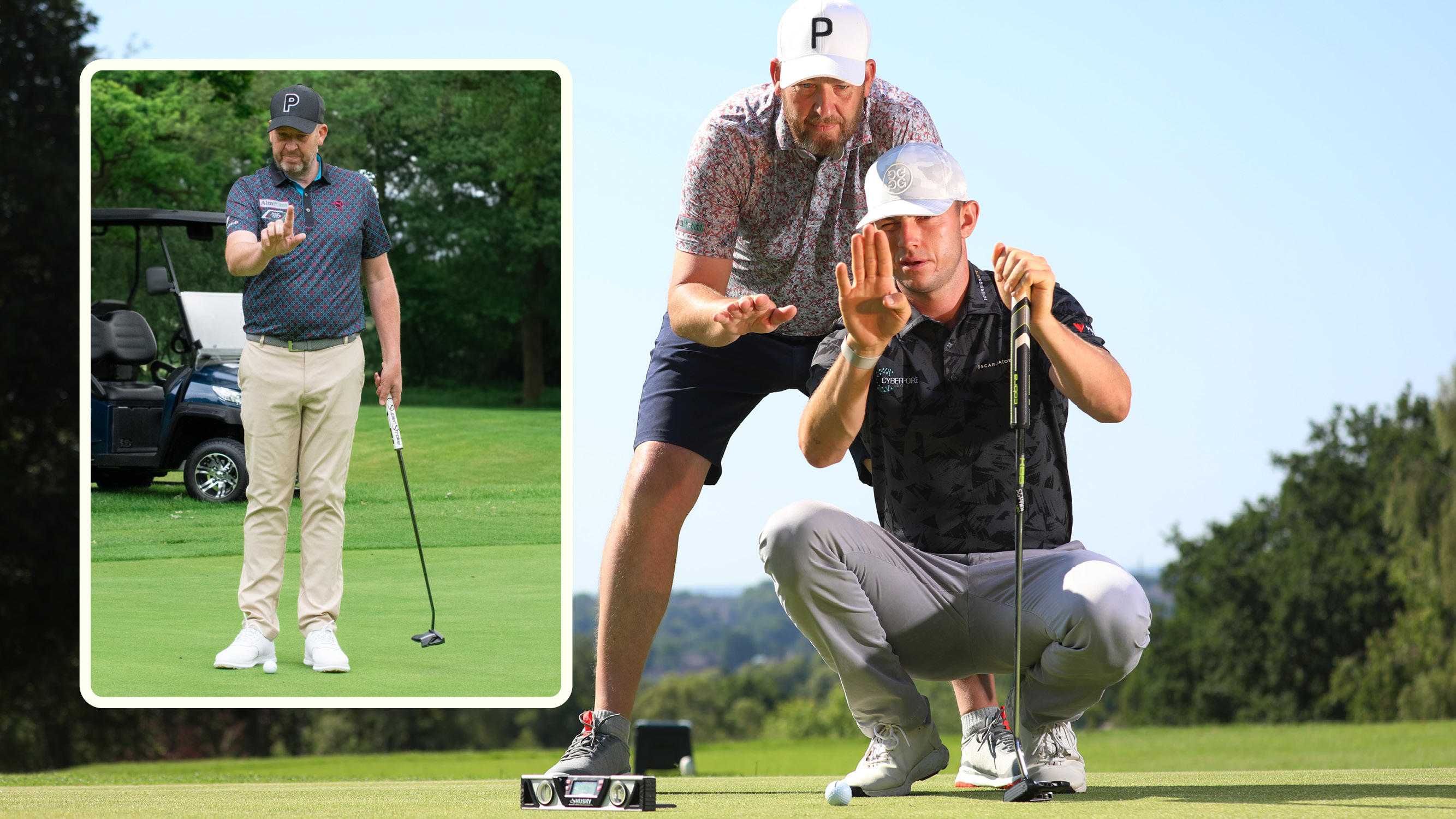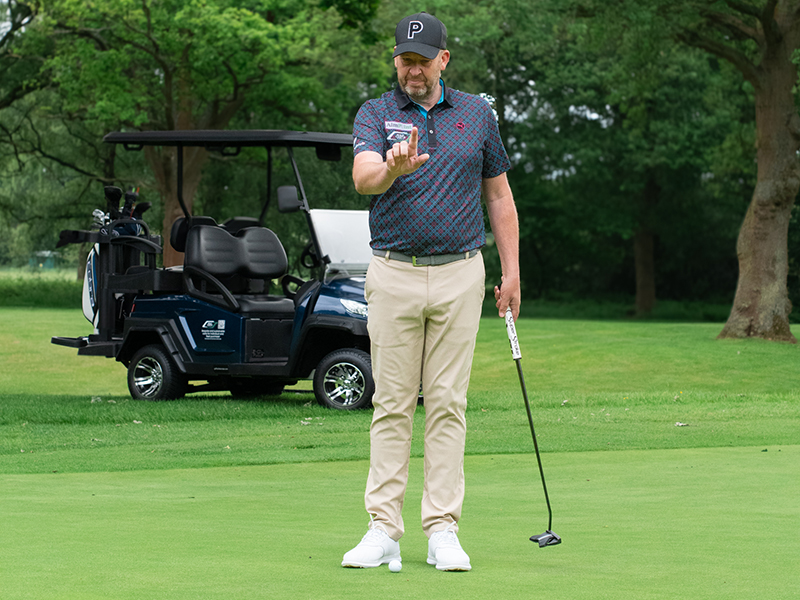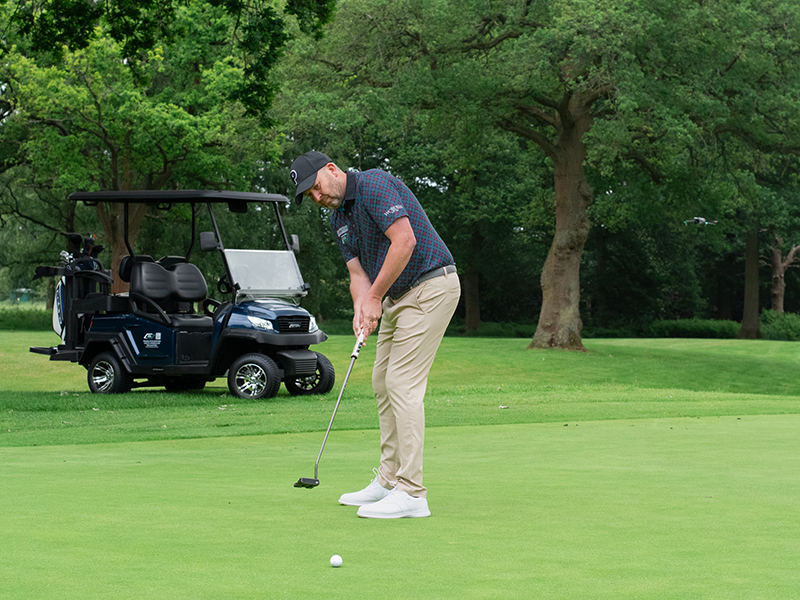
The use of AimPoint in golf has been a hotly debated topic in both the professional and amateur game for some time, while many of the world's best players use the system to help them successfully navigate the greens on some of the toughest courses in the world.
The green reading method has received its fair share of criticism over the years, predominantly centred around its perceived impact on the pace of play, but is the condemnation justified?
I travelled down to Woburn Golf Club to meet with Europe's senior AimPoint instructor, Jamie Donaldson, and asked for his thoughts on some of the more negative appraisals of AimPoint...
Q+A With Jamie Donaldson, Europe's senior AimPoint instructor
How do you feel about criticism of AimPoint generally?
"We get criticised a lot, and we always have done. It used to be terrible, and my take on that is, in the golf industry, there's all these magic fixes and it's full of the latest things, but we've been here for 20 years, and exponentially, the players using AimPoint is growing all the time.
"Take the Olympics, for example, Tommy Fleetwood uses AimPoint and he took silver. Justin Rose uses AimPoint and he took gold. I don't know how much more proof they need. What have you got to do to silence these people? What do you have to do to make people accept it?"
A viral video and post were shared during the US Open earlier this year, criticising the use of AimPoint. What would your response to the post be (below)?
“I've been anti-AimPoint since my junior golf days, when girls would stomp all over my line to read their 4-foot putts. We've reached a new level of disgrace. Literally what is happening here”.
"They must have been taught incorrectly. So, I'm probably going to answer this question in three parts. First of all, we teach people where to stand and how to do it correctly. For a four-foot putt, you just need to measure in one place, so there's no need to be stomping around and moving in different areas.
"If you're taught properly by an AimPoint certified coach, you know how to stand with the correct etiquette around where to position yourself. I would also say that people have to go to the pin to remove it, therefore you've got to walk there anyway. So, you can't not stand somewhere on a green.
"If they're (the next player) putting after her, then they're nearer than four feet, and the line will be very narrow. So, if they straddle, they're nowhere near where she's going to be, as the nearer you get to the hole the less break you have. We teach people to straddle with quite a wide stance, so in this situation I assume they've been taught incorrectly."

Another golf media brand released an article questioning whether ‘weekend hackers’ should be using AimPoint on the course. What are your thoughts? Does the system require a certain ability level to be successful?
"Definitely not. I think if everyone used AimPoint, it would speed up play as it takes an average of 10 seconds to get a read. If you're organised, and get your read before it's your turn, everyone would be missing closer.
"If a group of four players has three less putts per green, that's got to save a couple of minutes (per hole). In my opinion, people should be taught it from the start, as you would get into less bad habits. The 'weekend hacker' would have fewer stroke issues if they knew where to aim from the outset."
There have been suggestions that AimPoint slows the pace of play on the golf course, is that a fair comment?
"Definitely not. AimPoint is proven to be the fastest way to read a green, unless it's a complete guess without looking. A five-foot putt could take three seconds to read.
"We timed players at one of the Opens, and we noticed a couple of things. First of all, everyone's green reading and pre-shot routine had almost identical timings. Secondly, AimPoint was by far the fastest way.
"You could even get your data before you've marked your ball. If you're doing your pitch mark, you can get your slope feels meaning once you've marked the ball, it's just a case of putting it back and hitting it."

Are some of the misconceptions around slow play, relating to AimPoint, perhaps linked to people not carrying the method out correctly?
"Totally, if you wait until it's your turn, you're going to take too long. We teach people to make their slope feel predictions before it's even their go. Being prepared is everything.
"If you stand around watching someone else's putt and wait until it's your go to take your read, everyone is now looking at you and that's when you can make mistakes. If you're doing it (taking reads) when it's not your turn, you've got a bit of headspace to think about what you're doing."







